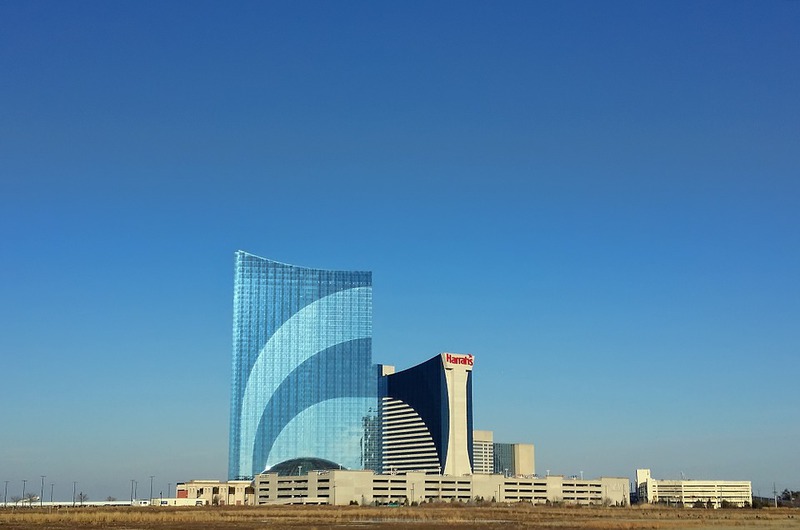






Atlantic City Casino Total Revenue Up In 2016Revenue From Casino Operations Grows To $1.68B In First Half Of Year |
|
|
 Though it will soon lose another brick-and-mortar casino, the Atlantic City casino industry grew through the first six months of 2016.
Though it will soon lose another brick-and-mortar casino, the Atlantic City casino industry grew through the first six months of 2016.
According to figures released Monday from state gaming regulators, the industry reported total revenue of $1.68 billion from January to June, up 1.6 percent compared to the same period last year. Total industry revenue fell 11.8 percent in the first half of 2015 compared to the $1.88 billion from the same period in 2014.
Gaming revenue of $1.2 billion this year was 2.2-percent better than a year ago, while revenue from rooms increased 1.4 percent to $193.6 million. Food and drink sales fell a percent to $210.4 million, and the entertainment and “other” category saw revenue fall 0.7 percent to $70.4 million.
Casino win as a percentage of total revenue was 71 percent during the first six months of 2016. For comparison, gaming win in Nevada as a percentage of total revenue is just over 40 percent these days, which is an all-time low. Las Vegas is becoming more and more diversified.
Atlantic City is more concerned about hanging on.
Gross operating profit for the Atlantic City brick-and-mortar and online casinos during the first six months of 2016 grew 21.3 percent year-over-year to $258.8 million. Borgata had $106.1 million of that profit, which was a 26.7-percent increase year-over-year. That casino also continues to have the largest share of the online gaming market.
The occupancy rate in the city’s casino hotels for the six months ended June 2016 was 78.9 percent, which was 0.4 percentage points higher than the same period last year.
 Revel, the most expensive casino in Atlantic City’s history, was planning on reopening some of its hotel rooms in June, but, thanks to red tape from the state and local government, that has been delayed. The owner of the casino is threatening to walk away from the project.
Revel, the most expensive casino in Atlantic City’s history, was planning on reopening some of its hotel rooms in June, but, thanks to red tape from the state and local government, that has been delayed. The owner of the casino is threatening to walk away from the project.
When the Trump Taj Mahal closes in October, it will be the first casino to shutter since 2014, a year in which four of the city’s then 12 brick-and-mortar casinos closed.
Shortly after New Jersey lost an another legal challenge to federal law banning it from allowing sports books in Atlantic City casinos, Gov. Chris Christie said that he will campaign for casinos in north Jersey. The issue is on the November ballot. If the referendum is successful, Atlantic City will lose its decades-long casino monopoly in the Garden State.
The governor was using support for the new casinos as leverage in his efforts to get his version of an Atlantic City bailout passed. The city was ultimately given more time to sort out its finances and avoid bankruptcy. Its fate remains uncertain if it loses its casino monopoly to an area much closer to New York City. New casinos are also being built in the Empire State.
 Atlantic City gaming revenue has taken a massive hit over the past decade thanks to casinos opening up in nearby states, especially Pennsylvania. A handful of years ago, the Keystone State leapfrogged New Jersey as the second largest non-tribal casino gambling market in the country behind Nevada. Silver State gaming win is about double the combined gaming win in Pennsylvania and New Jersey.
Atlantic City gaming revenue has taken a massive hit over the past decade thanks to casinos opening up in nearby states, especially Pennsylvania. A handful of years ago, the Keystone State leapfrogged New Jersey as the second largest non-tribal casino gambling market in the country behind Nevada. Silver State gaming win is about double the combined gaming win in Pennsylvania and New Jersey.
The silver lining for New Jersey is the state’s rapidly growing online gambling market, which has more than 90 percent of the overall U.S. market. Licensed online casinos in the state of New Jersey won and raked $17.4 million from gamblers during July, an increase of 38.6 percent compared to July 2015. It was also a record month for the state’s online gambling industry.
New Jersey and the United Kingdom are in talks to implement a shared liquidity system for online poker. The arrangement could expose New Jersey poker players to an additional two million online gamblers out of a country of more than 64 million people.
